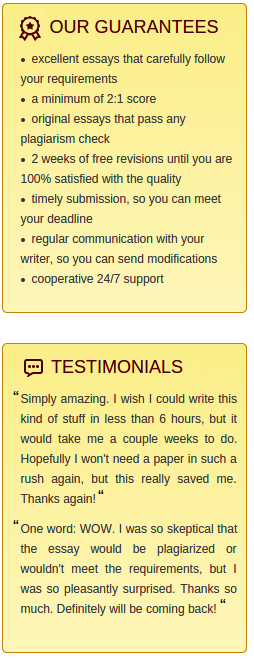Do’s and Don’ts in Your Critique Essay
Wednesday, October 20th, 2010Keys for successful critique essays

Do you need to write a critique essay, and you are not sure what to do? Are you afraid of repeating common mistakes? Relax and stay calm: we can help you out! Critique essays should be focused as argumentative essays: imagine you are trying to persuade the reader to change his or her mind into your opinion. You can’t force them to accept the given arguments. Quite the contrary, you must provide them irrefutable reasons on why you are right and the other statements are wrong.
Remember that, as in any other kind of essay, a proper organization of your ideas is the key to a good essay marking. Your examiner will appreciate the organization of your work, as it will make it more easily readable.
Do’s
– Include a summary: If you are criticizing an author, you always have to begin your critique essay with a summary of the author’s point of view, considering the main ideas that they express and some facts that influenced them. We know your teacher is already familiarized with the given author, but you should write your essay for any reader.
– Research: Try to read as much as you can before you start to write the essay. By doing a good, deep research, you may be able to find contradictory ideas in different works of the same author, and that can change your mind on the way to organize your critics.
– Be (rhetorically) modest: Always complete a critique essay with quotes, not only from the author himself but also from some of the most famous critics there has been in different moments. You can refer to them as the “experts”, putting yourself in a modest position by this rhetorical resource.
Don’ts
– Don’t criticize “per se”: When you are asked to write a critique essay, that doesn’t necessarily mean you have to reject the author or the book you are criticizing. What it means is that you have to evaluate ideas based on solid arguments, and prove your point, no matter if you are trying to agree or to reject the concepts. In fact, critical essays can be perfectly built in total agreement with the reading.
– Don’t stick to your own time parameters: Of course there always has to be an evaluation of the author’s work judged by its time as well as present time. You can’t criticize a book of the 1800’ judging it by today’s values, at least not without considering it’s worth at the time it was written.
– Don’t get carried away by your feelings: This kind of essay should show your ideas in an objective way. They are supposed to be informative; they should emphasize the literary work being studied instead of the feelings and opinions of the student writing the work. In fact, a good essay would utilize a professional and objective tone. So even if you want the reader to actually hate a certain author or book, you should always focus on facts rather than the unpleasant feeling you experimented while reading it.




